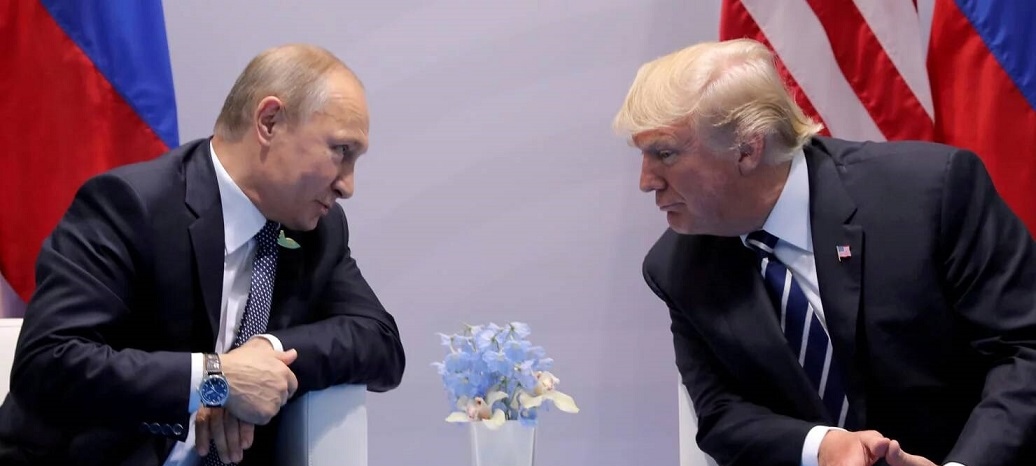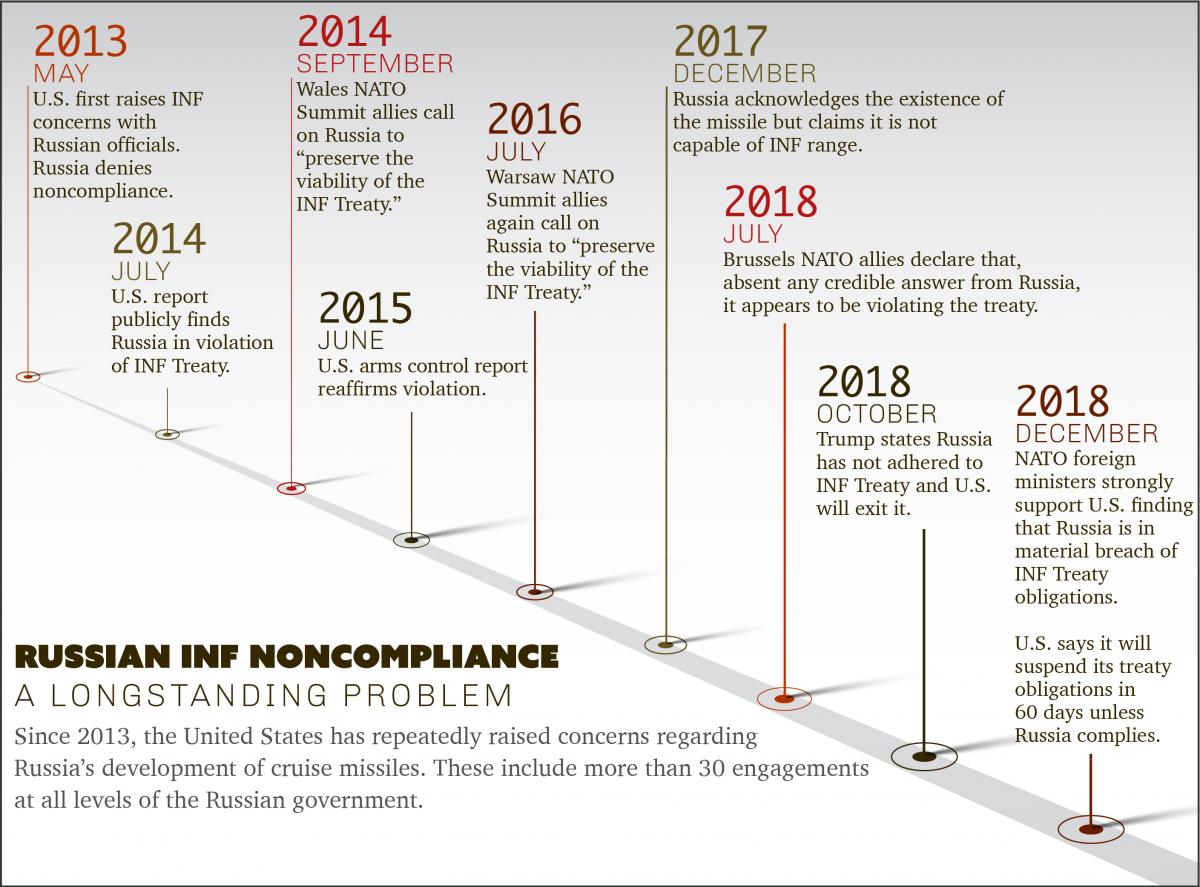US set to suspend INF Treaty
February 2, 2019 | Expert Insights

The United States and Russia announced that they had failed to reconcile their differences over the Intermediate-range Nuclear Forces Treaty (INF). The US President announced the withdrawal in October 2018 after citing Russian non-compliance. The US will start the six-month process of exiting from February 2nd.
Background
The INF (Intermediate-Range Nuclear Forces) Treaty was signed by US and USSR in 1987. It was inked by then-President Ronald Reagan and Soviet leader Mikhail Gorbachev to help protect the security of the US and its allies in Europe and the Far East. It bars the United States and Russia from possessing, producing or test flying a ground-launched cruise missile with a range of 300 miles to 3400 miles excepting sea-launched weapons.
According to the provisions, the US was obliged to destroy Pershing I and II launcher systems and BGM-109G Gryphon ground-launched cruise missiles. Moscow, meanwhile, pledged to remove the SS-20 and several other types of missiles from its nuclear arsenal. By 1991, nearly 2,700 missiles had been destroyed. Both countries were allowed to inspect the others installations.
In 2007, Russian President Vladimir Putin declared that the treaty no longer served Russia's interests. The move came after the US withdrew from the Anti-Ballistic Missile Treaty in 2002. On 20 October 2018, citing Russian non-compliance, US President Donald Trump announced that he was withdrawing the US from the treaty.

Analysis
Secretary of State Mike Pompeo is expected to announce that the US will suspend participation in an arms control treaty with Russia that has been a centrepiece of European security since the Cold War. President Donald Trump and his senior officials have been signalling for months that they are ready to pull out of the Intermediate-Range Nuclear Forces Treaty, which the US and Europe accuses Moscow of violating since 2014.
The ground-based nuclear-tipped cruise missiles covered by the bilateral treaty can fly between 310 to 3,100 miles, making them a threat to Europe, where officials are urging the US and Russia to continue talks, even as they consider their next steps and admit to having little to no optimism that the treaty can be saved.
Under Secretary of State for Arms Control and International Security, Andrea Thompson said Russia had until Feb. 2 to comply, and if they're not in compliance, the US will suspend its obligations to the treaty. Thompson met with Russian Deputy Foreign Minister Sergey Ryabkov in Beijing and he said that "there was no progress" in the talks on the issue.
On January 23rd 2019, Russia for the first time publicly presented its 9M729 (SSC-8) missile, which reportedly should be the main reason for the US withdrawal from the treaty, revealing the missile's technical parameters. However, representatives of the US, UK, France, Germany, the EU and NATO failed to attend the briefing about the missile "The only way you can get the system back into compliance is to destroy the system," Thompson said. "Destroy the missile. There is no way to alter it, there is no way to change it, there is no way to adjust the fuel cycle."
Washington's departure from the agreement will make "everything more dangerous," former Sen. Sam Nunn, co-chairman of the Nuclear Threat Initiative said. Europe is "worried about US withdrawal in particular because it takes the pressure off Russia and would probably allow Russia to develop and deploy even more of these types of weapons, which threaten, fundamentally, Europeans rather than Americans," noted Jeff Rathke, president of the American Institute for Contemporary German Studies at the Johns Hopkins University.
"We are heading into a direction we have not been in 40 years: no arms control limits or rules that we are both following and that is very dangerous," said Lynn Rusten, a senior director for arms control and nonproliferation at the National Security Council.
Russia fully expects the US to suspend its involvement in the treaty on the February 2 deadline, at which point, he said the treaty "will be null and void from a judicial point of view and the point of international law." "Unfortunately, there is no progress. The US position remains rather tough and ultimatum-like," Ryabkov said. "We told the US side that it is impossible to hold dialogue in the conditions of attempted blackmailing of Russia," he added.
Assessment
Our assessment is that the demise of the treaty would free Russia and US from any treaty obligation. Both countries are likely to use the withdrawal as an excuse to deploy systems elsewhere. We feel the US is concerned that China is not bound by the treaty and is pursuing its own long-range ballistic missile program. We believe that dismantling the existing controls will force Europe to develop its own anti-ballistic missile program. It is likely that the US will now develop new weapons to counter any impending Chinese threat.








Comments